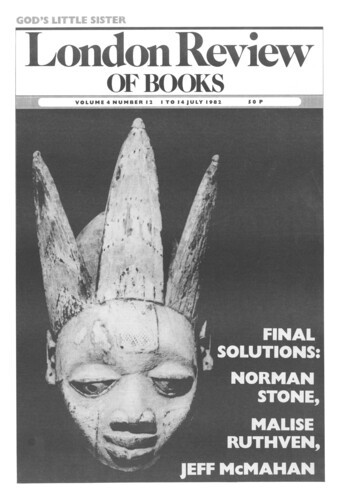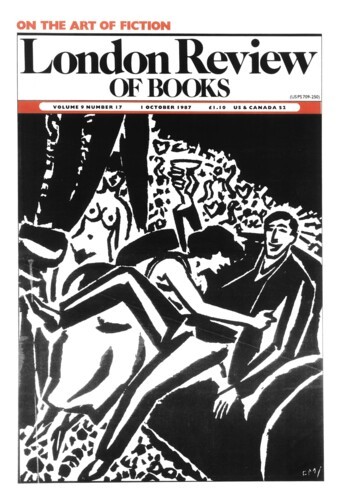The Excessive Demands of Impartiality
Thomas Nagel, 1 July 1982
According to Professor Hare, most contemporary moral philosophers are benighted. They cannot get through their thick skulls the clear principles of moral reasoning which he has set out and developed in two previous book-length studies of ethical theory, The Language of Morals and Freedom and Reason, and which he spells out again and develops further in this one. Like a teacher of dim-witted children, he can’t always conceal his impatience at having to repeat himself, but the importance of the issues keeps him at it.





